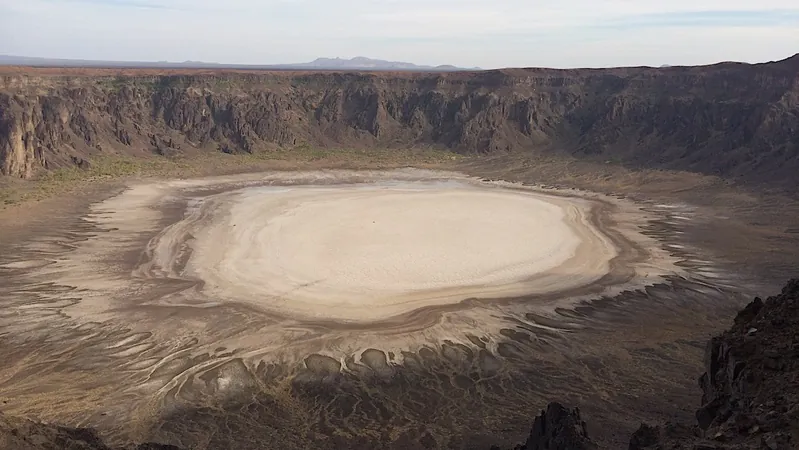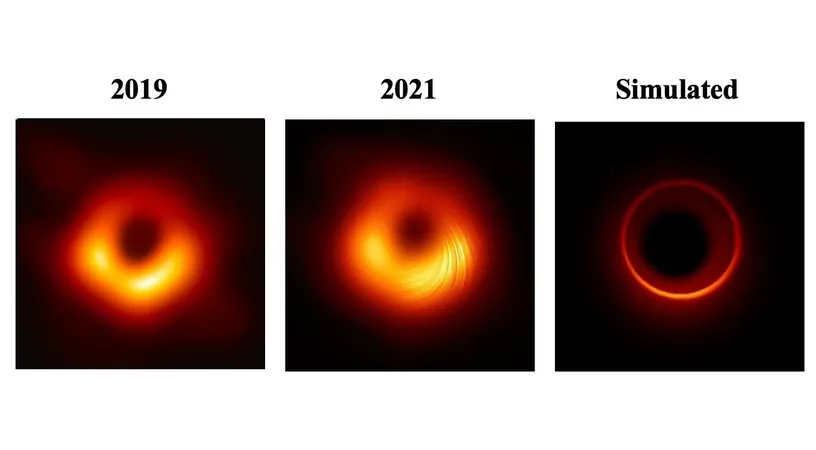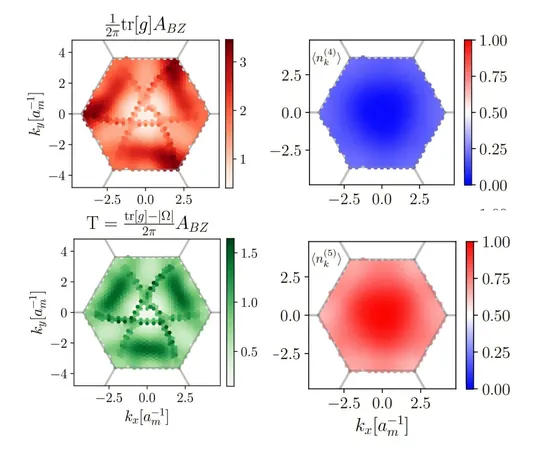
Could Al Wahbah Crater Hold the Key to Life on Enceladus? Meet the Super Resilient Bacteria!
2024-12-01
Author: Jacques
Exploring the Harsh Environment of Al Wahbah Crater
The relentless pursuit of extraterrestrial life has led scientists to some of the harshest environments on Earth, and nowhere is this more thrilling than Al Wahbah Crater in Saudi Arabia. This fascinating site, characterized by its salt-alkaline soil, serves as a natural laboratory for exploring extremophilic microorganisms that could mirror the conditions found on Enceladus, one of Saturn's intriguing icy moons.
Significant Discoveries in Extremophilic Microorganisms
Recent research has honed in on these hardy organisms, realizing their importance in the quest for understanding alien life. Among the 48 bacterial strains isolated from the crater, two remarkable thermo-haloalkaliphilic strains were sequenced, revealing significant genetic adaptations that suggest they have found ways to thrive under extreme stresses. The findings from Halalkalibacterium halodurans specifically shed light on the favorable genes and pathways that empower these bacteria to withstand extreme saline and alkaline conditions.
Cutting-Edge Techniques Unveil Vital Biomolecules
But that’s not all! The study incorporated cutting-edge techniques such as mass spectrometry combined with a molecular network approach. This enabled researchers to identify various classes of biomolecules, including phospholipids and nonproteinogenic amino acids, which may serve as vital biosignatures. These molecular markers are crucial for future missions aimed at probing Enceladus, where scientists hope to uncover evidence of life.
Broader Implications for Astrobiology
The implications of these findings are profound. As we broaden our search for life beyond Earth, the Al Wahbah Crater stands out as a beacon of hope, offering insights not just into our planet’s own microbial residents but also into the potential for life on other celestial bodies. This research emphasizes the necessity of examining extreme environments on Earth that could illuminate our understanding of astrobiology and potentially lead us one step closer to answering the age-old question: Are we alone in the universe?
The Future of Space Missions and Discoveries Awaiting Us
As missions to explore Enceladus ramp up, eyes will be closely glued to the results of this ongoing research. What discoveries lie ahead, and how will they reshape our understanding of life beyond our blue planet? Stay tuned!









 Brasil (PT)
Brasil (PT)
 Canada (EN)
Canada (EN)
 Chile (ES)
Chile (ES)
 España (ES)
España (ES)
 France (FR)
France (FR)
 Hong Kong (EN)
Hong Kong (EN)
 Italia (IT)
Italia (IT)
 日本 (JA)
日本 (JA)
 Magyarország (HU)
Magyarország (HU)
 Norge (NO)
Norge (NO)
 Polska (PL)
Polska (PL)
 Schweiz (DE)
Schweiz (DE)
 Singapore (EN)
Singapore (EN)
 Sverige (SV)
Sverige (SV)
 Suomi (FI)
Suomi (FI)
 Türkiye (TR)
Türkiye (TR)